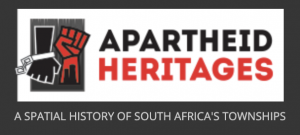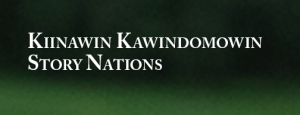Global Digital Projects
Global Digital Projects
Julian Chambliss
Global + Digital
Digital Humanities continues to be a space where the challenge of understanding the constructed nature of our global reality is made clear. Digital projects offer an opportunity to investigate, record, and recontextualize the forces that shape global culture. The pathways to accomplish these goals vary, and the methodological toolkit offered by digital humanities both stimulates conversations and challenges comprehension for students, faculty, and the public. The projects on display here offer a way to understand the diverse perspective that can manifest a critical digital humanities approach concerned with the global, broadly defined.

Apartheid Heritages: A Spatial History of South Africa’s Townships website is part of a larger analogue and digital book project currently under development by Dr. Angel David Nieves. This “book” is in the very early phases of discussion and development with a university press.

Kiinawin Kawindomowin Story Nations
The stories of Canada’s founding and future have often drowned out those of Indigenous nations; through our presentation of a missionary’s diary, we hope to make visible and audible the stories of people that he met on Ojibwe land in 1898, with the help of people we met when visiting there in the twenty-first century.
Kiinawin Kawindomowin Story Nations is a digital storytelling collaboration based in Toronto, on the territory of the Huron-Wendat and Petun First Nations, the Seneca, and most recently, the Mississaugas of the Credit River. This land has long been governed by the Dish With One Spoon Wampum Belt Covenant, an agreement between the Iroquois Confederacy and Confederacy of the Ojibwe and allied nations to peaceably share and care for the resources around the Great Lakes. The website remediates the diary of a Toronto missionary-journalist named Frederick H. Du Vernet, who visited the Rainy River Ojibwe of Treaty 3 territory in the summer of 1898. Professor Pamela Klassen and a team of students from the University of Toronto work in consultation with staff, Elders, and community members of the Kay-Nah-Chi-Wah-Nung Historical Centre of the Rainy River First Nations, located in Northwestern Ontario. Together, we have developed a digital edition of Du Vernet’s diary that you can read and listen to. The diary, and now the website, documents Ojibwe responses to Christianity through multimedia storytelling that spans the early Canadian colonial expansion of Treaty 3 territory into the present.

Islamophobia and anti-Muslim hostility are present in American public life as never before. It may be difficult for those outside of Muslim communities to appreciate how, over time, experience of Islamophobia affects the way that American Muslims participate—or not—in public life in ways that others may take for granted. From September 2001 through today, American Muslims have faced incredible pressure to prove “Americanness,” making it more and more difficult to participate in public debates about the public good in free and voluntary terms. Many of us have read or heard about Islamophobic incidents. One central aim of this project is to present in visual terms how these incidents accumulate over time to create certain conditions of public life for American Muslims.
A key premise guiding our work is that every event or incident growing out of Islamophobic attitudes—including seemingly innocuous incidents of anti-Muslim graffiti and offhand comments, vandalism, verbal and physical assault, employment and other forms of discrimination, anti-Muslim protests and public campaigns, local ordinances and state-level legislation targeting Muslim communities in some way, and political rhetoric at the local, state, and national level—creates conditions inimical to free and voluntary participation in public life. For this reason, we include a significant range of incidents and events.
Crucially, our site also includes data on American Muslim participation in public life. We have gathered information about a wide range of activities, covering a variety community outreach activities, interfaith work, political outreach, and political activities. When setting data on Islamophobia and the nature of American Muslim participation in public life side by side, as this site does, it is easy to see the significant connection between the two. Providing such an opportunity to meditate on the relationship between hate and public participation is another central aim of this project. It is here that we offer a small measure of analysis.

